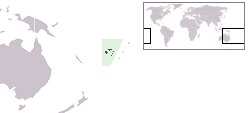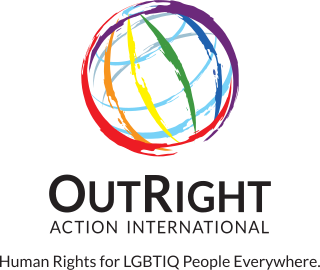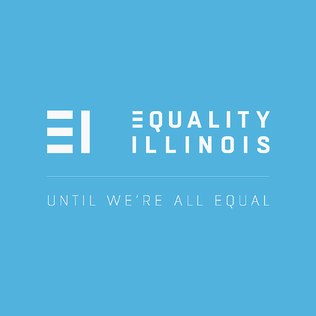Related Research Articles
"Gay agenda" or "homosexual agenda" is a pejorative term used by sectors of the Christian religious right as a disparaging way to describe the advocacy of cultural acceptance and normalization of non-heterosexual sexual orientations and relationships. The term originated among social conservatives in the United States and has been adopted in nations with active anti-LGBT movements such as Hungary and Uganda.

Lesbian, gay, bisexual, and transgender (LGBTQ) people in Ghana face severe challenges not experienced by non-LGBT residents. Sexual acts between males have been illegal as "unnatural carnal knowledge" in Ghana since the colonial era. The majority of Ghana's population hold anti-LGBT sentiments. Physical and violent homophobic attacks against LGBT people occur, and are often encouraged by the media and religious and political leaders. At times, government officials, such as police, engage in such acts of violence. Young gay people are known to be disowned by their families and communities and evicted from their homes. Families often seek conversion therapy from religious groups when same-sex orientation or non-conforming gender identity is disclosed; such "therapy" is reported to be commonly administered in abusive and inhumane settings.

Lesbian, gay, bisexual, and transgender (LGBT) rights in Fiji have evolved rapidly over the years. In 1997, Fiji became the second country in the world after South Africa to explicitly protect against discrimination based on sexual orientation in its Constitution. In 2009, the Constitution was abolished. The new Constitution, promulgated in September 2013, bans discrimination based on sexual orientation and gender identity or expression. However, same-sex marriage remains banned in Fiji and reports of societal discrimination and bullying are not uncommon.

Lesbian, gay, bisexual, transgender and queer (LGBTQ) rights in Australia rank among the highest in the world; having significantly advanced over the latter half of the 20th century and early 21st century. Opinion polls and the Australian Marriage Law Postal Survey indicate widespread popular support for same-sex marriage within the nation. Australia in 2018, in fact was the last of the Five Eyes set of countries - that consisted of namely Canada (2005), New Zealand (2013), United Kingdom (2014) and the United States (2015) to legalize same-sex marriage. A 2013 Pew Research poll found that 79% of Australians agreed that homosexuality should be accepted by society, making it the fifth-most supportive country surveyed in the world. With its long history of LGBTQ activism and annual Gay and Lesbian Mardi Gras festival, Sydney has been named one of the most gay-friendly cities in the world.

OutRight International (OutRight) is an LGBTIQ human rights non-governmental organization that addresses human rights violations and abuses against lesbian, gay, bisexual, transgender and intersex people. OutRight International documents human rights discrimination and abuses based on their sexual orientation, gender identity, gender expression and sex characteristics in partnership with activists, advocates, media, NGOs and allies on a local, regional, national and international level. OutRight International holds consultative status with ECOSOC.
The World Congress of Families (WCF) is a United States coalition that promotes Christian right values internationally. It opposes divorce, birth control, same-sex marriage, pornography, and abortion, while supporting a society built on "the voluntary union of a man and a woman in a lifelong covenant of marriage". WCF comprises organizations in several countries, and most of its member partners are strongly active campaigners against abortion rights and same-sex marriage. WCF was formed in 1997 and is active worldwide, regularly organizing conventions. Its opposition to gay marriage and abortion has attracted criticism.

Lesbian, gay, bisexual, and transgender (LGBT) people in Zambia face significant challenges not experienced by non-LGBTQ residents. Same-sex sexual activity is illegal for both men and women in Zambia. Formerly a colony of the British Empire, Zambia inherited the laws and legal system of its colonial occupiers upon independence in 1964. Laws concerning homosexuality have largely remained unchanged since then, and homosexuality is covered by sodomy laws that also proscribe bestiality. Social attitudes toward LGBT people are mostly negative and coloured by perceptions that homosexuality is immoral and a form of insanity. However, in recent years, younger generations are beginning to show positive and open minded attitudes towards their LGBT peers.

Lesbian, gay, bisexual, transgender, and queer (LGBTQ) people in the U.S. state of Kentucky still face some legal challenges not experienced by other people. Same-sex sexual activity in Kentucky has been legally permitted since 1992, although the state legislature has not repealed its sodomy statute for same-sex couples. Same-sex marriage is legal in Kentucky under the U.S. Supreme Court ruling in Obergefell v. Hodges. The decision, which struck down Kentucky's statutory and constitutional bans on same-sex marriages and all other same-sex marriage bans elsewhere in the country, was handed down on June 26, 2015.

Equality Illinois (EI) was founded in 1991 to work towards building a better Illinois by advancing equal treatment and social justice through education, advocacy, and protection of the rights of the LGBTQ community.

The health access and health vulnerabilities experienced by the lesbian, gay, bisexual, transgender, queer or questioning, intersex, asexual (LGBTQIA) community in South Korea are influenced by the state's continuous failure to pass anti-discrimination laws that prohibit discrimination based on sexual orientation and gender identity. The construction and reinforcement of the South Korean national subject, "kungmin," and the basis of Confucianism and Christian churches perpetuates heteronormativity, homophobia, discrimination, and harassment towards the LGBTQI community. The minority stress model can be used to explain the consequences of daily social stressors, like prejudice and discrimination, that sexual minorities face that result in a hostile social environment. Exposure to a hostile environment can lead to health disparities within the LGBTQI community, like higher rates of depression, suicide, suicide ideation, and health risk behavior. Korean public opinion and acceptance of the LGBTQI community have improved over the past two decades, but change has been slow, considering the increased opposition from Christian activist groups. In South Korea, obstacles to LGBTQI healthcare are characterized by discrimination, a lack of medical professionals and medical facilities trained to care for LGBTQI individuals, a lack of legal protection and regulation from governmental entities, and the lack of medical care coverage to provide for the health care needs of LGBTQI individuals. The presence of Korean LGBTQI organizations is a response to the lack of access to healthcare and human rights protection in South Korea. It is also important to note that research that focuses on Korean LGBTQI health access and vulnerabilities is limited in quantity and quality as pushback from the public and government continues.
Nebraska Family Alliance (NFA) is a fundamentalist Christian 501(c)(3) organization based in Lincoln, Nebraska. It most prominently lobbies against LGBT rights, such as same-sex marriage and LGBT adoption. The NFA also seeks legal restrictions on abortion, and to change public policy on gambling and human trafficking. It advocates for traditional family structures and gender roles.
Cyril Kobina Ben-Smith is a Ghanaian Anglican Bishop. He is the current Bishop of Asante Mampong and was elected Archbishop of the Church of the Province of West Africa in June 2022, in succession to Archbishop Jonathan Hart of Liberia.
The LGB Alliance is a British advocacy group and registered charity founded in 2019 in opposition to the policies of LGBT rights charity Stonewall on transgender issues. Its founders are Bev Jackson, Kate Harris, Allison Bailey, Malcolm Clark and Ann Sinnott. The LGB Alliance describes its objective as "asserting the right of lesbians, bisexuals and gay men to define themselves as same-sex attracted", and states that such a right is threatened by "attempts to introduce confusion between biological sex and the notion of gender". The group has opposed a ban on conversion therapy that includes trans people in the UK, opposed the use of puberty blockers for children, and opposed gender recognition reform.
LGBT+ Rights Ghana is a Ghanaian organization that advocates for LGBT rights in Ghana. The organization has engaged in some forms of activism including creating the Ghana Gay Blackmail List to combat the blackmail and extortion of gay men. In 2021, the organization opened its office in Accra which led to public outrage and opposition from anti-LGBT organizations in Ghana. LGBT+ Rights Ghana's Executive Director is Alex Kofi Donkor.
On 20 May 2021, 21 LGBT rights activists in Ghana were arrested at a hotel in Ho, Ho Municipal District, during an assembly where the activists were discussing human rights treatment of LGBT+ people in the country. The arrests sparked international condemnation and the rise of a movement under the banner #ReleaseThe21 calling for their release and an end to state violence against the Ghanaian LGBT+ community. In the most recent court hearing, on 11 June 2021, the activists were granted bail on their fourth application. The case was dropped on 5 August 2021 on the basis of lack of evidence on the charge of unlawful assembly.
The Humanist Association of Ghana (HAG) is a humanist organization of atheists and agnostics living in Ghana who espouse humanism as a way of life, fight for the protection of human rights and promote critical thinking.

The Ghanaian anti-LGBT bill is a proposed law in Ghana that would introduce wide-ranging restrictions on LGBT+ rights. The bill was approved by the Parliament of Ghana on 28 February 2024 with bipartisan support, and will only come into effect if signed into law by president Nana Akufo-Addo.
Rightify Ghana is a Ghanaian organization that advocates for LGBT rights in Ghana. Rightify Ghana was established in February 2020 as a non-profit organization to advocate for the rights of LGBT+ Ghanaians.
The International Federation for Therapeutic and Counseling Choice (IFTCC) is a London-based organization that internationally lobbies governments and religious organizations to oppose bans on conversion therapy, the pseudoscientific practice of attempting to change a person's sexual orientation or gender identity, which has condemned by medical organizations and human rights groups as "unethical, unscientific and ineffective and, in some instances, tantamount to torture."
References
- ↑ Jackman, Josh (21 August 2018). "Hundreds of gay people to be 'treated for homosexuality' at camp in Ghana". PinkNews. Retrieved 6 August 2022.
- ↑ Pfeifer, Danai Nasta (6 August 2022). "Homophobic doctors push conversion therapy at training workshop in Ghana". PinkNews. Retrieved 6 August 2022.
- ↑ Okyere, Sam (10 March 2021). "Ghana's imported intolerance of LGBT+ rights". openDemocracy. Retrieved 6 August 2022.
- ↑ Milton, Josh (December 7, 2021). "LGBT+ Ghanaians should be forced into conversion therapy, bigot tells MPs".
- ↑ Kupemba, Danai Nesta (June 4, 2022). "Anti-LGBTQ+ Christian groups launch sinister campaign to 'reclaim the rainbow'".
- ↑ "The disinformation campaign targeting Ghana's LGBT community". openDemocracy.
- ↑ "'God Has A New Africa': undercover in a US-led anti-LGBT 'hate movement'". openDemocracy.
- ↑ @RightifyGhana (July 19, 2022). "The groups behind the anti-LGBTQI: the National Coalition for Proper Human Sexual Rights and Family Values as well as the Believers Against LGBTQI (group of MPs in Parliament), have religious fundamentalist views and ideologies" (Tweet) – via Twitter.
- ↑ Stewart, Colin (February 16, 2021). "Ghana: LGBT+ safe house opens; anti-gay crusader in a rage". Erasing 76 Crimes.
- ↑ "Ghana: Submission to the Universal Periodic Review". July 14, 2022.